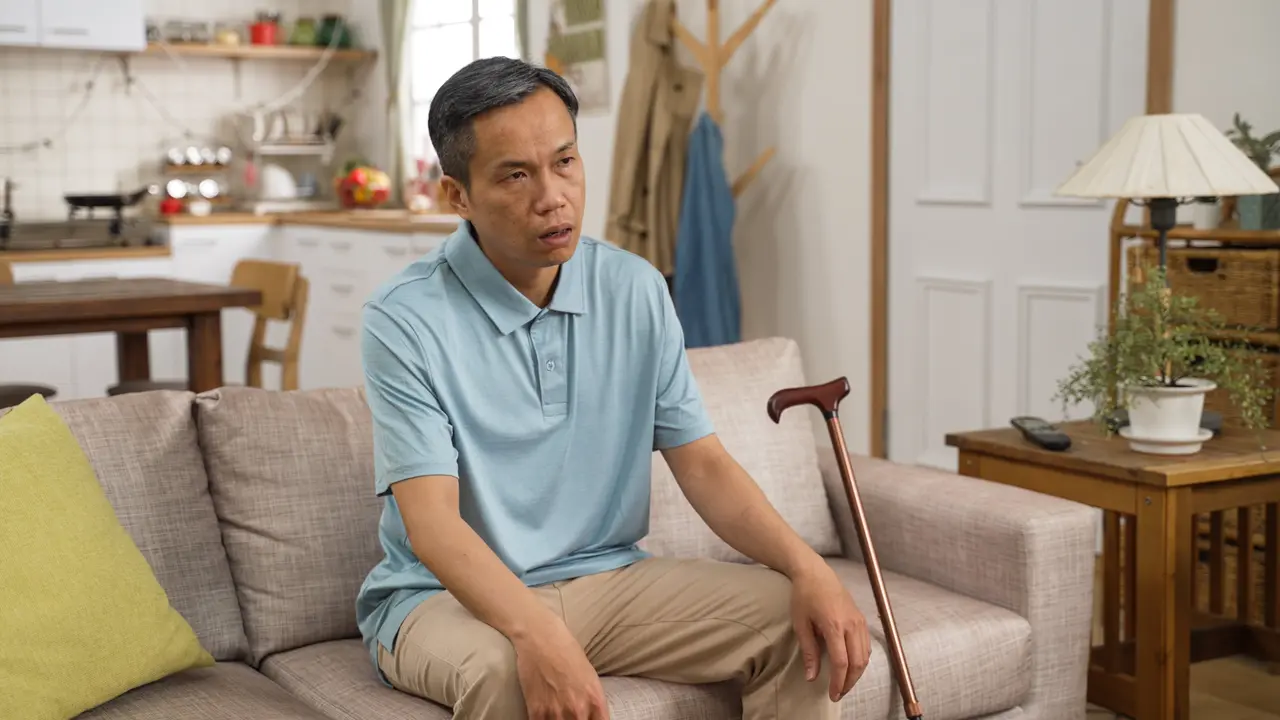9 Techniques for Communicating to A Person with Dementia
Dementia is the impaired ability to think, remember, and make decisions and is common among older age people. If your loved one has dementia, it’s important to communicate carefully with them because the condition can affect their ability to understand, process, and communicate information. They may have difficulty finding the right words, recalling recent events, or understanding complex ideas. Senior communities in Colorado such as Balfour Senior Living recommend using the following techniques to help you communicate with people with dementia.
1 – Focus on one topic at a time.
To facilitate simpler conversations, try to concentrate on one topic at a time. Completely finish discussing one thing before moving on to the next. It may be helpful to plan out what you want to talk about beforehand and make some notes or set a specific aim for the conversation. In addition, try to steer clear of asking questions that are too complicated and instead frame your questions in a way that gives a clear option.
2 – Get rid of distractions.
Before starting a conversation, consider the surroundings and make sure they are conducive to having a good talk. Eliminate distractions by turning off electronic devices and make sure you are facing one another so that your loved one can easily see you. It’s important to get their undivided attention, so try to maintain eye contact. This can help create a more focused and comfortable atmosphere for communication.
3 – Use clear language.
When you communicate with your loved one, try to use a calm and even-toned voice. You might find it helpful to slightly slow down the pace of your speech to give them time to register and respond to what you’re saying. It’s also a good idea to use straightforward, specific language, including names and details, rather than vague pronouns. Do your best to have a natural, respectful conversation and avoid talking down to or using exaggerated speech that one might use with a very young child.
The 24-hour onsite licensed nursing staff at our senior care facilities in Colorado are trained to communicate with residents with compassion and politeness, keeping in mind that your loved ones are grown-ups who deserve to be treated with dignity.
4 – Use your body language to let them feel welcome.
To create a more open and comfortable atmosphere, try to be at ease and let your body language reflect what you’re saying. If it feels appropriate, you can use physical touch, such as holding your loved one’s hand. Be aware of your movements and try not to make sudden changes to your facial expressions or body position, as this can be confusing or unsettling for your loved one. Pay attention to their body language and try to notice if they seem to be wandering away from the conversation or if they are using hand gestures to respond.
5 – Listen to them carefully.
It’s important to remember that communication is a shared process. After you have finished speaking, take a moment to give the person ample time to respond to you. Use your body language to show that you are interested in the conversation. If they are having trouble expressing themselves, you can try repeating back their words or being flexible and understanding. The goal is to have a mutual exchange of ideas and thoughts.
6 – Instead of repeating, rephrase what you say.
It can be challenging for someone with dementia to register what is being said. If you have repeated yourself already, and they are still having difficulty understanding, try to rephrase your sentences and use different words to express your ideas. It’s important not to get frustrated with yourself or your loved one if you need to repeat things more than once. Instead, try to be patient and flexible in your communication style.
7 – Focus on their passions and what brings them happiness.
You may find it helpful to communicate with your loved one about events from the past, as they often have a better memory for long-term events (e.g., from their upbringing) than short-term events (such as what they ate for breakfast that day). Try to identify things that bring the person and navigate the conversation towards that. It’s also worth noting that many studies have found that art, music, and activities can be effective ways to engage and inspire people with dementia. Many senior communities in Colorado, such as Balfour Senior Living, hold art and music sessions for their members.
8 – Be reassuring.
To make your loved one feel more at ease, try to be comforting in your tone, body language, and speech. Let them know that you want to be with them and are eager to communicate. Be open to their needs and give them plenty of time to process your words. Be patient when waiting for a response, and show them that you are present and attentive, without judging them. This can help create a supportive and positive atmosphere for communication.
9 – Don’t argue with them.
It’s important to accept that your loved one may make mistakes when they speak, such as repeating words or saying sentences that aren’t correct. They may also remember things differently than you do. Rather than getting hung up on every detail, try to reassure them and keep the conversation moving forward. Look for the underlying meaning behind their words by paying attention to their nonverbal cues and emotional expression. This can help you better understand their perspective and feelings.
Get In Touch With Our Senior Communities in Colorado
If your senior family member has dementia and you are seeking senior communities in Colorado that can provide your loved one with the proper care they need, Balfour Senior Living has over six locations in the state. From assisted living to memory care facilities, your loved one can greatly benefit from our luxury, top-of-the-line communities and professional services. Contact our staff to schedule a tour of one of our communities today.
Dementia is the impaired ability to think, remember, and make decisions and is common among older age people. If your loved one has dementia, it’s important to communicate carefully with them because the condition can affect their ability to understand, process, and communicate information. They may have difficulty finding the right words, recalling recent events, or understanding complex ideas. Senior communities in Colorado such as Balfour Senior Living recommend using the following techniques to help you communicate with people with dementia.
1 – Focus on one topic at a time.
To facilitate simpler conversations, try to concentrate on one topic at a time. Completely finish discussing one thing before moving on to the next. It may be helpful to plan out what you want to talk about beforehand and make some notes or set a specific aim for the conversation. In addition, try to steer clear of asking questions that are too complicated and instead frame your questions in a way that gives a clear option.
2 – Get rid of distractions.
Before starting a conversation, consider the surroundings and make sure they are conducive to having a good talk. Eliminate distractions by turning off electronic devices and make sure you are facing one another so that your loved one can easily see you. It’s important to get their undivided attention, so try to maintain eye contact. This can help create a more focused and comfortable atmosphere for communication.
3 – Use clear language.
When you communicate with your loved one, try to use a calm and even-toned voice. You might find it helpful to slightly slow down the pace of your speech to give them time to register and respond to what you’re saying. It’s also a good idea to use straightforward, specific language, including names and details, rather than vague pronouns. Do your best to have a natural, respectful conversation and avoid talking down to or using exaggerated speech that one might use with a very young child.
The 24-hour onsite licensed nursing staff at our senior care facilities in Colorado are trained to communicate with residents with compassion and politeness, keeping in mind that your loved ones are grown-ups who deserve to be treated with dignity.
4 – Use your body language to let them feel welcome.
To create a more open and comfortable atmosphere, try to be at ease and let your body language reflect what you’re saying. If it feels appropriate, you can use physical touch, such as holding your loved one’s hand. Be aware of your movements and try not to make sudden changes to your facial expressions or body position, as this can be confusing or unsettling for your loved one. Pay attention to their body language and try to notice if they seem to be wandering away from the conversation or if they are using hand gestures to respond.
5 – Listen to them carefully.
It’s important to remember that communication is a shared process. After you have finished speaking, take a moment to give the person ample time to respond to you. Use your body language to show that you are interested in the conversation. If they are having trouble expressing themselves, you can try repeating back their words or being flexible and understanding. The goal is to have a mutual exchange of ideas and thoughts.
6 – Instead of repeating, rephrase what you say.
It can be challenging for someone with dementia to register what is being said. If you have repeated yourself already, and they are still having difficulty understanding, try to rephrase your sentences and use different words to express your ideas. It’s important not to get frustrated with yourself or your loved one if you need to repeat things more than once. Instead, try to be patient and flexible in your communication style.
7 – Focus on their passions and what brings them happiness.
You may find it helpful to communicate with your loved one about events from the past, as they often have a better memory for long-term events (e.g., from their upbringing) than short-term events (such as what they ate for breakfast that day). Try to identify things that bring the person and navigate the conversation towards that. It’s also worth noting that many studies have found that art, music, and activities can be effective ways to engage and inspire people with dementia. Many senior communities in Colorado, such as Balfour Senior Living, hold art and music sessions for their members.
8 – Be reassuring.
To make your loved one feel more at ease, try to be comforting in your tone, body language, and speech. Let them know that you want to be with them and are eager to communicate. Be open to their needs and give them plenty of time to process your words. Be patient when waiting for a response, and show them that you are present and attentive, without judging them. This can help create a supportive and positive atmosphere for communication.
9 – Don’t argue with them.
It’s important to accept that your loved one may make mistakes when they speak, such as repeating words or saying sentences that aren’t correct. They may also remember things differently than you do. Rather than getting hung up on every detail, try to reassure them and keep the conversation moving forward. Look for the underlying meaning behind their words by paying attention to their nonverbal cues and emotional expression. This can help you better understand their perspective and feelings.
Get In Touch With Our Senior Communities in Colorado
If your senior family member has dementia and you are seeking senior communities in Colorado that can provide your loved one with the proper care they need, Balfour Senior Living has over six locations in the state. From assisted living to memory care facilities, your loved one can greatly benefit from our luxury, top-of-the-line communities and professional services. Contact our staff to schedule a tour of one of our communities today.








